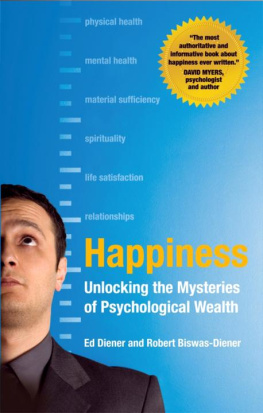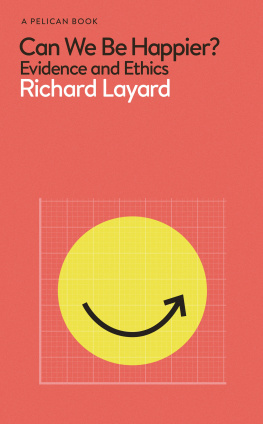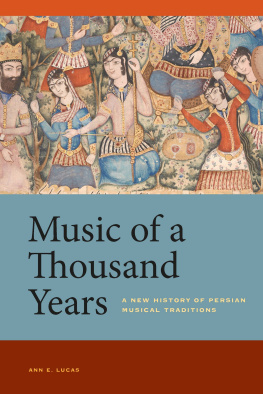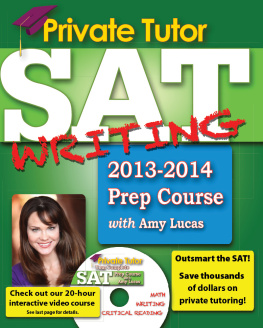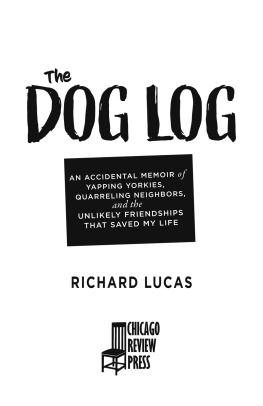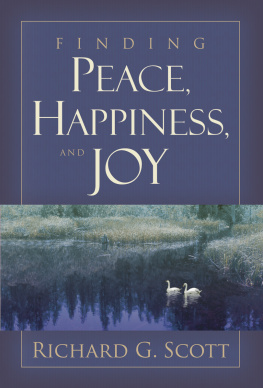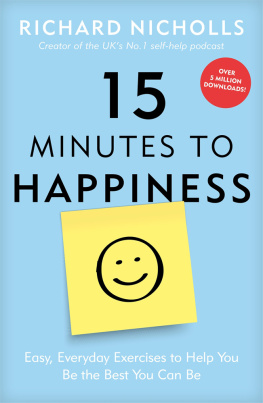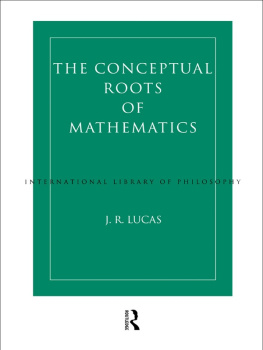Lucas Richard - Happiness: a brief history
Here you can read online Lucas Richard - Happiness: a brief history full text of the book (entire story) in english for free. Download pdf and epub, get meaning, cover and reviews about this ebook. City: Oxford, year: 2008;2009, publisher: Wiley-Blackwell, genre: Romance novel. Description of the work, (preface) as well as reviews are available. Best literature library LitArk.com created for fans of good reading and offers a wide selection of genres:
Romance novel
Science fiction
Adventure
Detective
Science
History
Home and family
Prose
Art
Politics
Computer
Non-fiction
Religion
Business
Children
Humor
Choose a favorite category and find really read worthwhile books. Enjoy immersion in the world of imagination, feel the emotions of the characters or learn something new for yourself, make an fascinating discovery.
- Book:Happiness: a brief history
- Author:
- Publisher:Wiley-Blackwell
- Genre:
- Year:2008;2009
- City:Oxford
- Rating:4 / 5
- Favourites:Add to favourites
- Your mark:
- 80
- 1
- 2
- 3
- 4
- 5
Happiness: a brief history: summary, description and annotation
We offer to read an annotation, description, summary or preface (depends on what the author of the book "Happiness: a brief history" wrote himself). If you haven't found the necessary information about the book — write in the comments, we will try to find it.
Happiness: a brief history — read online for free the complete book (whole text) full work
Below is the text of the book, divided by pages. System saving the place of the last page read, allows you to conveniently read the book "Happiness: a brief history" online for free, without having to search again every time where you left off. Put a bookmark, and you can go to the page where you finished reading at any time.
Font size:
Interval:
Bookmark:
"This is the most authoritative and informative book about happiness ever written. That's not surprising, given that its authors are the world's leading happiness researcher and his psychologist son, whose vocation is coaching people toward happier lives."
David G. Myers, Hope College, author, The Pursuit of Happiness: Who is Happy, and Why
"A great gift from the leading professional scientist of happiness in the world and his son, the 'Indiana Jones' of positive psychology."
Martin E. P. Seligman, Fox Leadership Professor of Psychology, University of Pennsylvania and author, Authentic Happiness
"This book is a must read! If you want science-based advice on what can make you truly happy, Dr. Diener, with his son Robert-Biswas Diener, bring to life over thirty years of cutting-edge research on how to achieve real psychological wealth. The Dieners are the real deal. No one has studied happiness more than Ed Diener, and few people have conducted field research in more exciting places than Robert. You'll quickly see why Ed Diener is called Dr. Happy and why Robert is called the 'Indiana Jones' of Positive Psychology."
David J. Pollay, B.A. Yale, M.A.P.P. University of Pennsylvania, President of The Momentum Project, syndicated columnist, and author, The Law of the Garbage TruckTM
"The collaboration between the foremost authority on happiness research and the 'Indiana Jones' of psychology makes for a great mix of interesting examples and solid research. I have never seen a book that does such a good job offering useful practical advice while basing this advice on completely sound empirical research."
Richard E. Lucas, Professor of Psychology, Michigan State University
"This is a happiness book by the world authority, the pre-eminent scholar in the field along with an in-the-trenches coach who teaches and adapts this material every day for practical use with coaching clients. Robert is also an international researcher and coaching scholar in his own right. This is to say that these are scholars who do the research and not just journalists or pop psychologists reporting it second hand. These folks know happiness from the inside out."
Michael B. Frisch, Psychologist and Neuroscientist, Baylor University; Positive Psychologist/Coach and Clinical Psychologist
"In the huge happiness industry that has grown up over the past few years, this hook is the very best overview of research and self-help manual available. It is written by the most productive, respected psychologist in the field of happiness studies and his son. It is the most readable, comprehensive overview and self-help manual available on happiness. If an ordinary citizen wanted to know about the contemporary science of happiness, it would be the place to begin.
Alex C. Michalos, Ph.D., F.R.S.C., Chancellor Director, Institute for Social Research and Evaluation
Psychological Wealth
Ed Diener and Robert Biswas-Diener





To our wives, Carol and Keya, who have been so helpful to us in our writing of the book, and to the Gallup Organization, for their encouragement and support.
With so many books about happiness on the market, why should you read this particular one? David Myers, psychologist and author of many books, including The Pursuit of Happiness, calls Ed Diener the "Jedi Master of Happiness Studies." He is referring to the fact that - over the course of a thirty-year career in psychology - Ed has pioneered the field of happiness studies, publishing more than two hundred scholarly papers and chapters on the topic. And Robert, labeled the Indiana Jones of Positive Psychology by one of the field's leaders, has pursued the secrets of psychological wealth in places such as India, Greenland, Kenya and in remote areas around the globe. Intrigued? Let me tell you a bit more about the authors, who happen to be my husband, Ed, and our son, Robert.
The road to being a world authority on happiness began for Ed on a farm in California. Ed grew up in the years after World War II, the youngest of six children. As his older siblings grew up and moved away, and his parents were busy with farming, Ed was often left to entertain himself. Of course, like many an unsupervised boy, he got into trouble. His curiosity led him to make a flame thrower, to throw bullets into an open fire, and to drive a car at age ten. By the time Ed was twelve, he drew up plans for a genetically modified monkey-dog (smart like a monkey but loyal like a dog!). Ed was intrigued by numbers and science. He filled his afternoons reading biographies of scientific luminaries such as Isaac Newton and the astronomer, Tycho Brahe, and attempted to recreate some of their classic studies at home. He discovered how to calculate the amount of water displacement of a brick and other objects by immersing them in the bathtub to determine their volume.
When he arrived at college, Ed focused his curiosity on human behavior. Why do people laugh and cry, why do people seek social situations, why do people do things that are bad for their health, and most importantly, what is happiness and how is it achieved? Ed suggested this last question as the topic of his research in college. Specifically, he proposed to study the happiness of farm workers. However, his professor would not approve the study, informing Ed that "it is impossible to study happiness ... it can never be measured." Besides, the professor opined, "I already know the answer. Farm workers cannot be happy." Discouraged, Ed wrote a paper on conformity instead.
After pursuing other research studies, Ed landed a faculty position at the highly ranked University of Illinois. When Ed earned tenure, we took a sabbatical to the Virgin Islands. There the idea of making a serious study of happiness returned. Ed spent much of his time reading the works of Aristotle, St. Thomas Aquinas, Maslow, and other great thinkers. He mapped out an ambitious plan for the serious study of happiness which he termed "subjective well-being" to lend it an air of scientific legitimacy to a skeptical academic world. During this same year, we took our three children out of school for trips to Haiti and South America. We motored up remote tributaries of the Amazon and were virtually alone in the deep jungle, surrounded by river porpoises, wooly monkeys, macaws, and piranha. After hours of travel we arrived at a settlement of Yagua people. The Yagua, who lived in stick houses and wore almost no clothing, were as fascinated by us as we were with them. But no one was more intrigued by the interactions than Robert. The tribal children crowded around him to look at his Mickey Mouse watch, and they let him shoot their blow darts at tree trunks. A village elder tried to give Robert curare poison for use with his blow gun, which we sensibly declined. However, the impact of this trip on Robert was immense. The realization that there were people who lived so differently from our neighbors in the American Midwest was a revelation that had a great influence on his adult career.
Font size:
Interval:
Bookmark:
Similar books «Happiness: a brief history»
Look at similar books to Happiness: a brief history. We have selected literature similar in name and meaning in the hope of providing readers with more options to find new, interesting, not yet read works.
Discussion, reviews of the book Happiness: a brief history and just readers' own opinions. Leave your comments, write what you think about the work, its meaning or the main characters. Specify what exactly you liked and what you didn't like, and why you think so.

